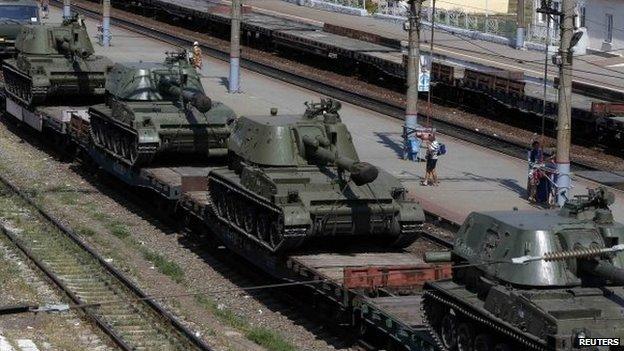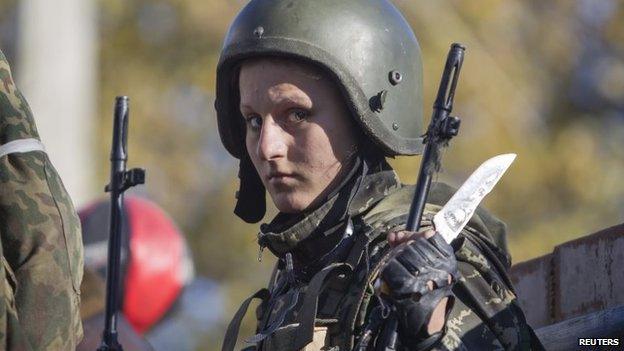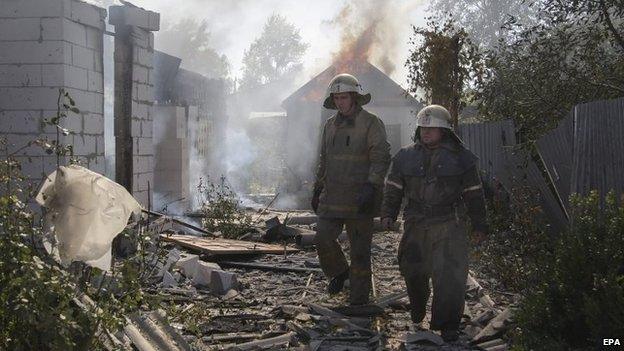Ukraine crisis: Putin 'orders Russian troop pullback'
- Published

Russia currently has thousands of soldiers near its southern border with Ukraine
Russian President Vladimir Putin has ordered thousands of troops stationed near the Ukrainian border to return to their bases, Russian media report.
Mr Putin's spokesman said about 17,600 soldiers on training exercises in the Rostov region would be pulled back.
Russia has previously announced troop withdrawals that Nato and the US say were not actually carried out.
Russia has been accused of supplying troops and weapons to separatist rebels in east Ukraine - claims it denies.
The latest order comes ahead of a planned meeting between Mr Putin and Ukrainian President Petro Poroshenko on Friday.
Ukrainian troops have been fighting pro-Russia rebels in the regions of Donetsk and Luhansk since April, in a conflict that has killed more than 3,500 people.
The two sides agreed a truce on 5 September, but fighting has continued, especially in and around Donetsk.

The 5 September truce between Ukrainian troops and rebels appears fragile as fighting has continued
"[Mr] Putin has ordered to start the returning of troops to regular station," presidential spokesman Dmitry Peskov said in quotes carried by Interfax and Ria Novosti news agencies.
Mr Peskov said this was because the period of training was completed.
Mr Putin made similar statements about withdrawing troops from the Ukrainian border in March and May.
However, Nato and US officials said they saw no evidence of soldiers being moved.

Much of the fighting in Donetsk has centred on the airport, which rebels are trying to seize
Correspondents say the deployment of Russian troops on Ukraine's border is seen as a powerful tool designed to threaten the government in Kiev.
Difficult talks
Meanwhile, Mr Putin and Mr Poroshenko are expected to meet on the sidelines of the Asia-Europe Meeting (ASEM) summit in Italy on Friday.
Mr Poroshenko told reporters: "I don't expect the talks will be easy."
"Russia's role in the issue of providing peace... is difficult to overestimate," he added.
Mr Poroshenko said he also hoped to discuss Russia and Ukraine's gas pricing dispute.
Russia cut off gas supplies to Ukraine in June, saying the Kiev government had not settled its debts.
Ukraine could face gas shortages in the winter if the dispute is not resolved.